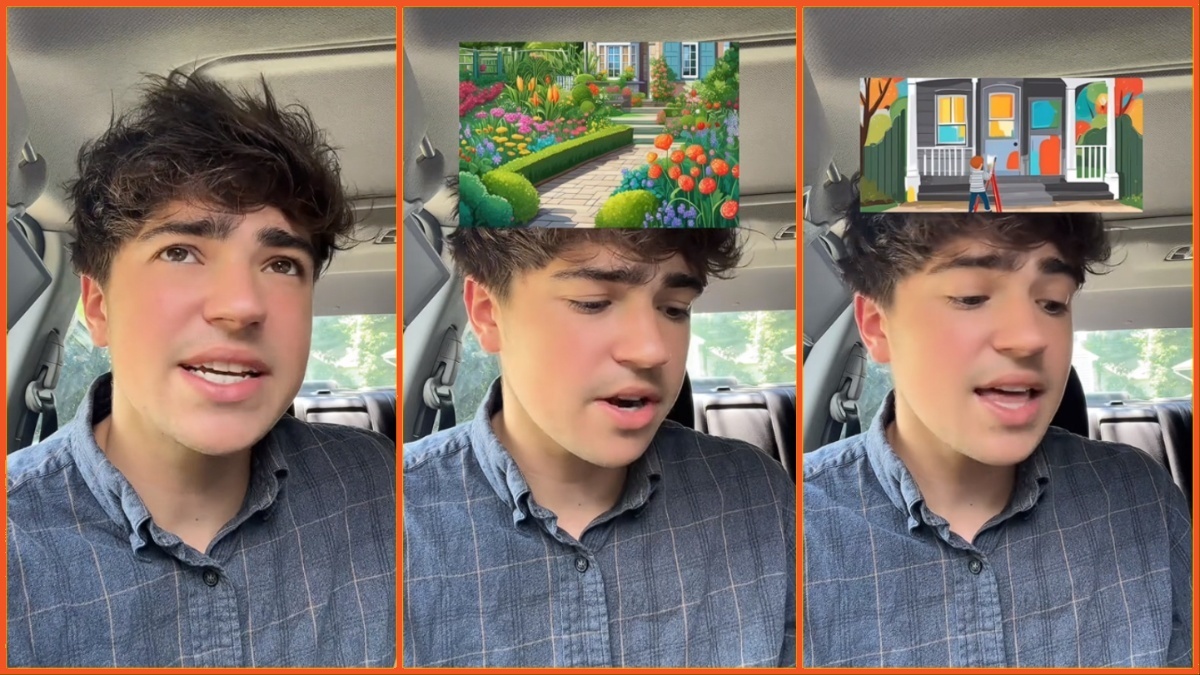It was recently brought to the attention of TikTok‘s @sash1e that anti-trans children’s books were making their rounds on the app, the wider internet, and, presumably, the libraries found within the halls of schools that need to go back to the classroom, in a manner of speaking.
Exactly what an anti-trans children’s book might look like is anyone’s guess, although it’s pretty easy to picture gross-looking, adult-animated-sitcom-esque illustrations paired with a story that teaches children that it’s never okay to try and understand somebody who doesn’t walk in the same world as you. After all, every well-adjusted adult knows that the best way to deal with insecurity about your own life experience and identity is to make sure no other such experiences exist or are validated by society.
Sarcasm aside, Sasha figured that the best way to address all of this was to pen his own children’s book centered on the morals of empathy, loving oneself in the face of others’ discomfort, and the evocative possibilities that come out of true happiness (all of which just so happen to be common themes of the trans experience).
In this two-minute and 11 second video, Sasha enthusiastically reads his story—about a downtrodden grey house whose interior turns out to be bright and beautiful. It becomes immediately apparent that this man has cooked and served, and is about to eat without leaving any crumbs. The flow of his rhymes are top-of-the-line, and the story is profoundly accessible for all ages, be it an early elementary-schooler or a middle-aged politician who runs on a platform of not understanding things.
Now, Sasha uses AI art in the TikTok to give some semblance of visualization for us, as he probably wrote this in a short period of time and was simply hoping to put this wonderful energy into the world as soon as possible, leading him to prompt up some inconsequential imagery just for the sake of setting the vibe on a TikTok video. Some commenters, as you can expect, couldn’t help but to call Sasha out for this.
These people are engaging in what’s called moral absolutism, which, according to Ethics Unwrapped via the University of Texas, is defined as “[asserting] that there are certain universal moral principles by which all peoples’ actions may be judged.” In other words, they believe that Sasha must be shamed because of the presence of AI art, and everyone who engages with AI art must be shamed.
This is to say that moral absolutism, particularly in the case of AI art, is absolutely ridiculous. Sasha is not myopically passing himself off as an “AI artist” (in fact, Sasha also happens to be a real-deal artist, and will probably make his own illustrations should he ever publish this book), he’s not using these images for monetary gain, he’s not depriving opportunities from artists (especially since this TikTok likely wouldn’t have been a paid gig), and he’s not submitting these images to a contest.
He’s setting a casual, completely informal mood for a fantastic children’s story that he’s reading just for TikTok, and those choosing to focus on his AI art are likely doing so because they don’t feel very significant in the context of their own lives, and shaming the use of AI art, no matter the context, gives them some semblance of control.
We should applaud Sasha for this book, and wish a lot of other people a lot of luck.

